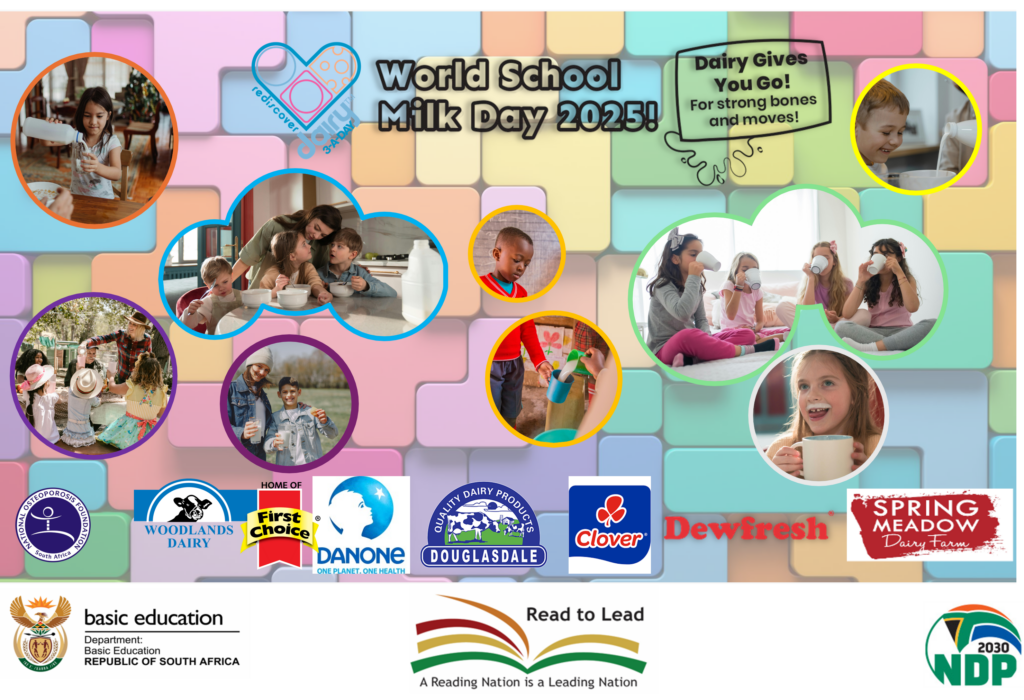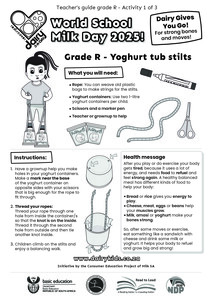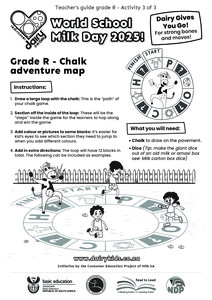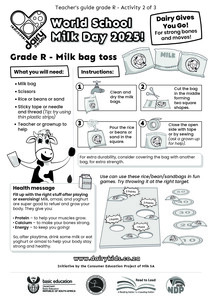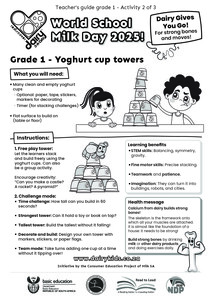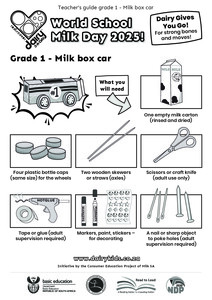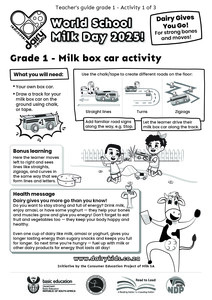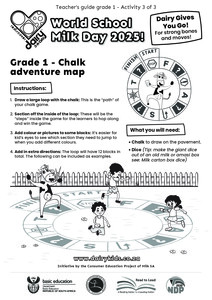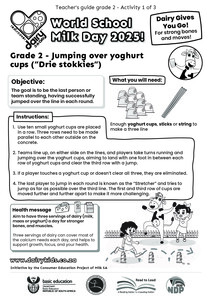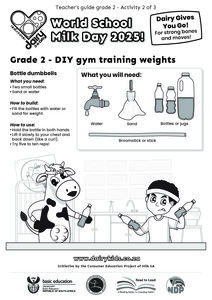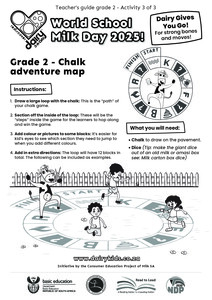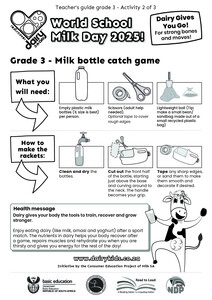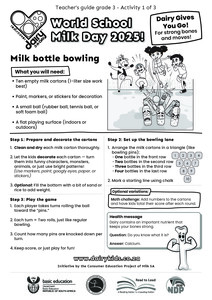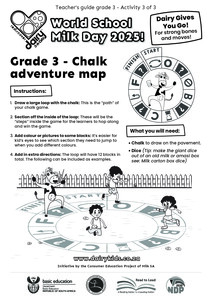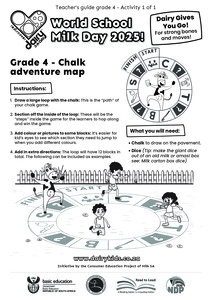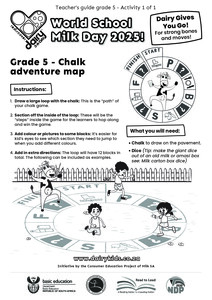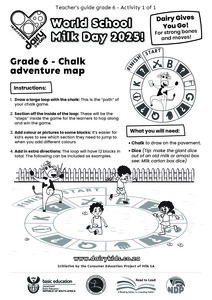Consuming nutritious food is important at all stages of life, but especially for children and adolescents. Not only is adequate nutrition needed to support growth and development, but it also properly fuels bodies and minds for learning. Since children spend a significant amount of time at school, milk programs, which are often included as part of larger school meal programs, give children access to the nutrients they need to grow healthfully and optimally. We celebrate the nutritional importance of milk and dairy in schools on World School Milk Day on the last Wednesday in September. Countries around the world celebrate World School Milk day to celebrate the health benefits of school milk programmes.
The Consumer Education Project of Milk SA (CEP), and various milk processors work together to educate, supply and celebrate the wholesomeness of dairy among school-going children. The Project, developed educational tools to assist the teachers and engage learning. The educational material of the Project is developed in line with the school curriculum as set out by SA’s Department of Basic Education (DBE). Various topics relating to dairy farming, processing and nutrition of dairy products in a healthy diet are elaborated on. The learners are engaged with the educational material and the school competitions themed around milk. Contact us to find out how you can take part.
The 2025 WSMD will be commemorated under the theme:
“Strong Bones, Strong Moves: Milk Matters for Sport and Growing Bodies!”
“Fuel your game with milk” is a key aspect which will be highlighted during this WSMD celebration. It aims to highlight milk as the ultimate sports and bone health ally for growing children. This campaign will utilise sports and physical activities to connect with school-aged learners, educators, and parents. It highlights how milk fuels strength, supports muscle recovery, and helps build bone density — key for physical performance and lifelong health.
Physical Education:
The development of the learner’s gross and fine motor skills and perceptual development is fundamental in the Foundation Phase. Physical and motor development is integral to the holistic development of learners. It makes a significant contribution to learners’ social, personal and emotional development. Play, movement, games and sport contribute to developing positive attitudes and values. This area focuses on perceptual and locomotor development, rhythm, balance and laterality. The focus in the Foundation Phase is on games and some activities that will form the basis of participating in sports later on. Physical growth, development, recreation and play are emphasised. (CAPS: Life Skills Gr. R-3)
Free play activities indoors and outdoors:
Free play activities can take place indoors or outdoors, or both. The time allocated to Physical Education and Creative Arts can be used for free play time because the physical skills learned and practised during free play support the learning in these two study areas. (CAPS: Life Skills Gr. R-3).
Full guide available here
Grade R
Grade 1
Grade 2
Grade 3
Grade 4
Grade 5
Grade 6
